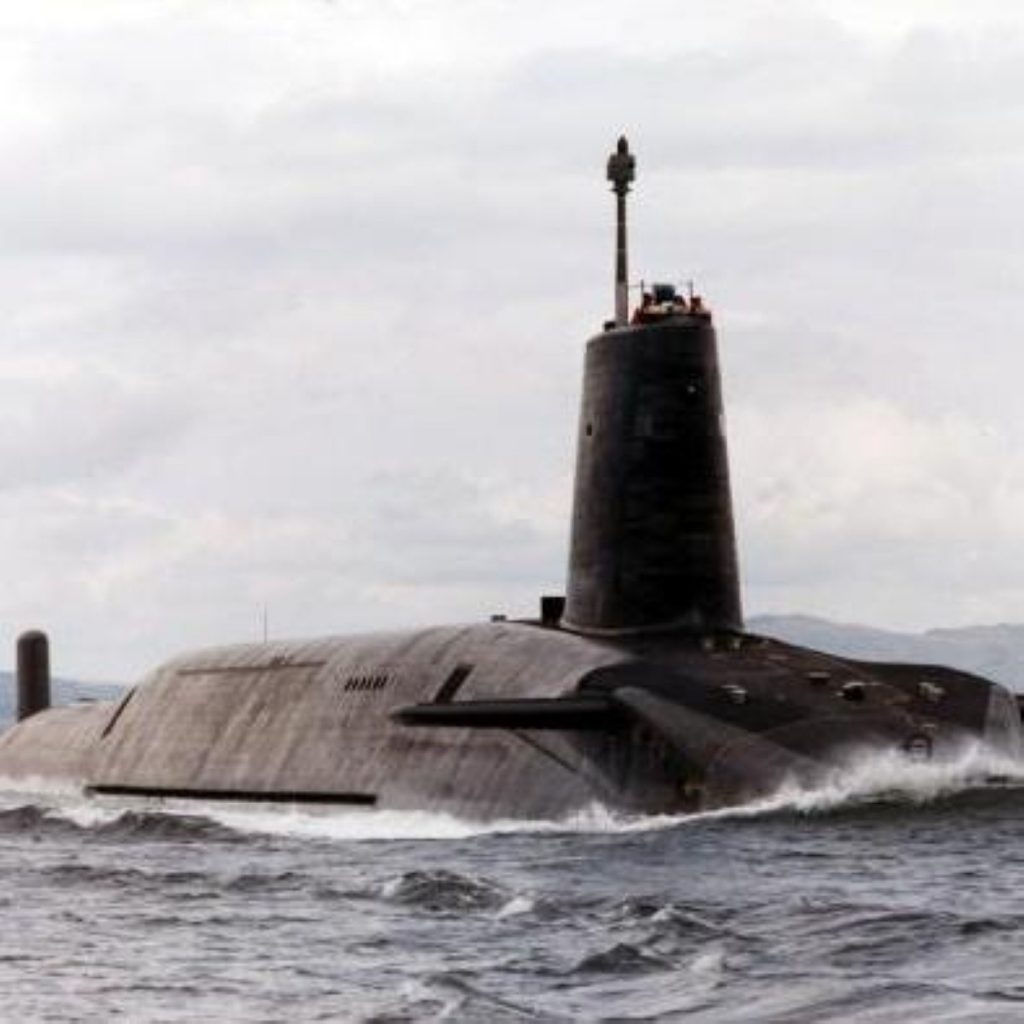MPs suggest scaling back Trident
MPs have suggested a compromise for the government as it contemplates the future of Britain’s nuclear deterrent.
A House of Commons committee says that scaling back Britain’s nuclear deterrent will give the government more time to make decisions on the successor to the Trident nuclear missile system.
The UK’s nuclear deterrent currently comprises four nuclear-powered submarines carrying 16 Trident nuclear missiles, each capable of carrying 12 warheads.
At any one time, one of these submarines is on patrol in a system known as the continuous-at-sea deterrent (CASD) cycle, the purpose of which is to avoid a Trident submarine setting sail during a crisis and potentially escalating the situation.


In a new report, the defence committee says that in light of the reduced threat in the post-Cold War era the government could scale back the UK’s submarine fleet and abandon the CASD system, giving it “a few more years” to make its decision.
The future of Trident is set to become a contentious issue for the Labour party, as many backbenchers have a background in nuclear disarmament campaigning.
Last week, the chancellor Gordon Brown, who is tipped to replace Tony Blair as prime minister, pledged to retain Britain’s Trident nuclear system.
And the issue was raised at prime minister’s question time on Wednesday when David Cameron pressed Mr Blair as to whether there would be a Commons’ vote on the issue.
The government has promised a debate on the issue in parliament, but has not said whether it will be put to a vote.
The committee welcomes the willingness to have a debate, but it is disappointed that the Ministry of Defence (MoD) refused to take part in its inquiry.
It wants to hear from the MoD on the “purpose and continuing relevance” of a successor system to Trident.
The MPs also urged the government to make a “fundamental political decision” on whether the UK should retain a strategic nuclear deterrence.
“In our view, the UK should make a clear decision on whether to retain the strategic nuclear deterrent. It is important that a decision of this magnitude is not taken by default. It should be made only after a full public debate. It must not be made by the government in secret,” the report states.
The committee sets out the likely timeframe in which decisions on Trident will need to be made.
It says that investment is needed now to sustain the UK’s industrial infrastructure and skills base until a decision is made, and warns that without this the range of options for replacing Trident will be reduced.
In the three years from 2007, the committee says the government will need to decide whether to extend the life of the existing Trident infrastructure, which will retire in 2024 and will take 14 years to replace from the start of the procurement process.
However, it believes it is not worth extending the life of the current infrastructure only to postpone a decision on what to replace it with. A five-year delay would be expensive, so should only be considered if it is to buy time before making a decision on whether or not to have a nuclear deterrent at all, it says.
In the conclusion to the report, it states: “If we do not extend the life of the Trident submarines and we want to maintain a continuous at-sea deterrent, decisions on their successor will need to be made very swiftly. If we are prepared to abandon the continuous at-sea-deterrent, we will have a few more years.”
In the longer term, the UK will have to decide whether to continue with a submarine based system, or to opt for a ship, air or land based system.
A white paper on the future of Trident will be published later this year, whereupon the issue will be discussed by MPs.
Earlier this week, when pressed as to whether MPs would be allowed a vote, the prime minister told the House of Commons: “We will announce the means of consultation at the time we publish the white paper. Of course we believe it is important we have the fullest possible debate on the subject.”









